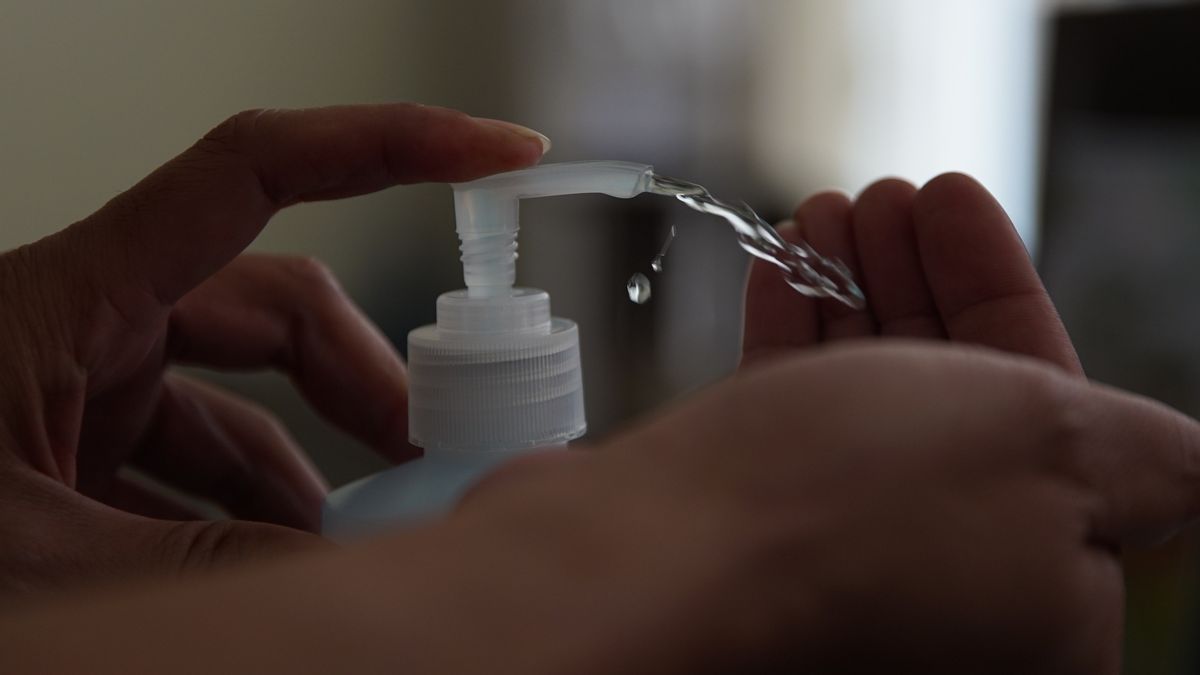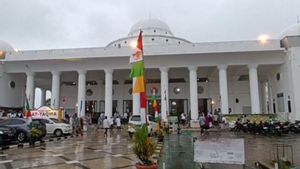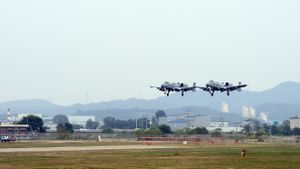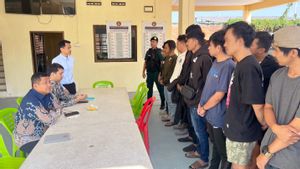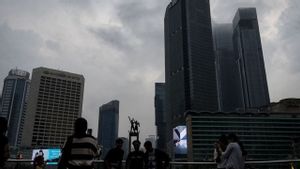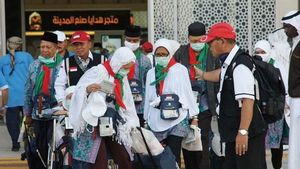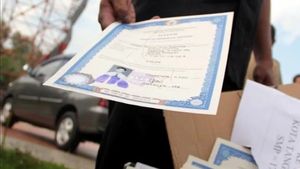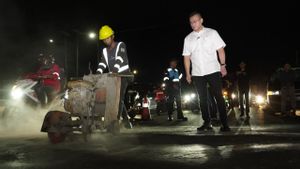JAKARTA - The potential for the emergence of a new cluster of COVID-19 cases in the implementation of Transitional Large-Scale Social Restrictions (PSBB) regulations in Jakarta is quite large. Because, with the existence of these rules the crowd will not be avoided.
Airlangga University (Unair) epidemiologist Laura Navika Yamani said the low level of individual awareness in implementing health protocols is one of the causes. That way, the potential for transmission will be even greater.
"In this condition, we need to be aware of the emergence of new clusters, especially in areas that have the potential to cause crowds," Laura told VOI, Wednesday, June 10.
In fact, even by adopting a clean and healthy lifestyle, infection may not be avoided. The reason is that no effective steps have been found to prevent transmission or spread. So, the protocol for preventing COVID-19 by diligently washing hands and wearing masks is one of the ways that must be done.
"As long as it is not supported by health protocols there will be a great potential for transmission," said Laura.
For this reason, in implementing the PSBB during the transition period the role of the government is very large in terms of supervision. This can be done in several ways, such as checking the readiness of health facilities and increasing surveillance or searching for new cases.
That way, the potential for the emergence of new clusters will be lower because those who are infected have been overcome.
"It needs regular monitoring and evaluation. Then by checking health facilities and health surveillance," said Laura.
The same thing was conveyed by the Epidemiologist from the University of Indonesia, Syahrizal Syarief. According to him, the potential for the emergence of a new cluster is quite large. This is influenced by increased community movement and contact.
"Everything is possible, the increase in movement affects the number of contacts per unit time," said Syahrizal.
To prevent the emergence of new clusters, increasing specimen examinations is key. Either by using a rapid test or a PCR swap.
"Massive test examinations are important, both rapid test and swap PCR. Especially for people who are at high risk," said Syahrizal.
Transitional PBSBB ImplementationThe Governor of DKI Jakarta, Anies Baswedan extended the PSBB period in Jakarta from the 5th until an undetermined time. However, this phase four PSBB is a transitional phase.
During June, Jakarta still implemented restrictions by implementing the COVID-19 prevention protocol, but with the previous easing of the PSBB. The goal is that people can do activities to fulfill their daily needs.
In detail, activities that have been reopened from the social and cultural sectors are outdoor sports facilities, museums, galleries, libraries, parks, RPTRA, and beaches. Then, offices and houses of worship also reopened.
In addition, the types of business premises will be opened gradually starting on June 8. On Monday, June 8, the places of business that may be opened are restaurants (independent), industry, warehousing, shops, workshops, services, photocopying, and other supporting services. Meanwhile, on Saturday, June 13, MSMEs under the guidance of the DKI Provincial Government may be opened.
Then, on June 15, Anies only allowed the opening of mall markets and shopping centers other than those providing food. All these places are allowed to only accommodate 50 percent of the total existing capacity. On June 20, the theme park and zoo will open.
All places that are reopened must comply with regulations by reducing capacity by 50 percent, and implement COVID-19 prevention protocols.
However, there are activities that have not yet been decided to open. This activity will only be opened during the phase two transition period, after the DKI Provincial Government has reviewed the PSBB during the first phase of the transition.
These activities are religious activities with mass gathering, schools, gyms, swimming pools, night markets, folk festivals, beauty clinics, salons, conference halls, wedding and circumcision receptions, cinemas, night entertainment, butuk, and the like.
In addition, starting tomorrow, all public vehicles can resume operations with a 50 percent storage capacity. The MRT and Transjakarta will operate in normal hours with short headways.
In private vehicles, motorbikes and cars are allowed to carry 100 percent of the capacity provided that all are one family. Meanwhile, in general, private vehicles can only accommodate 50 percent. Then, Anies allowed base ojek or online ojek to operate starting Monday, June 8.
The English, Chinese, Japanese, Arabic, and French versions are automatically generated by the AI. So there may still be inaccuracies in translating, please always see Indonesian as our main language. (system supported by DigitalSiber.id)
